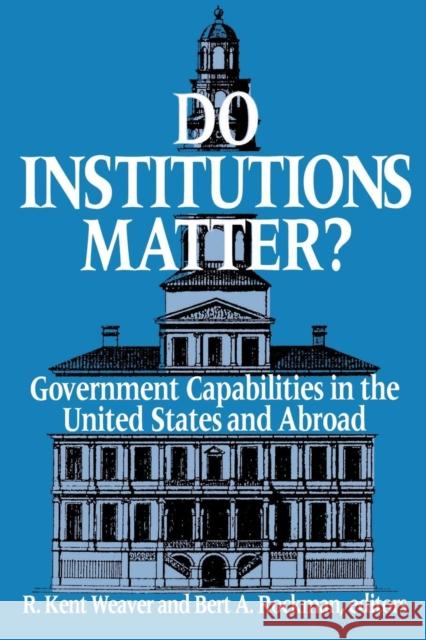Do Institutions Matter? Government Capabilities in the United States and Abroad » książka
Do Institutions Matter? Government Capabilities in the United States and Abroad
ISBN-13: 9780815792550 / Angielski / Miękka / 1993 / 512 str.
As a stunning tide of democratization sweeps across much of the world, countries must cope with increasing problems of economic development, political and social integration, and greater public demand of scarce resources. That ability to respond effectively to these issues depends largely on the institutional choices of each of these newly democratizing countries. With critics of national political institutions in the United States arguing that the American separation-of-powers system promotes ineffectiveness and policy deadlock, many question whether these countries should emulate American institutions or choose parliamentary institutions instead.
The essays in this book fully examine whether parliamentary government is superior to the separation-of-powers system through a direct comparison of the two. In addressing specific policy areassuch as innovation and implementation of energy policies after the oil shocks of 1970, management of societal cleavages, setting of government priorities in budgeting, representation of diffuse interest in environmental policy, and management of defense forcesthe authors define capabilities that allow governments to respond to policy problems.
"Do Institutions Matter?" includes case studies that bear important evidence on when and how institutions influence government effectiveness. The authors discover a widespread variation among parliamentary systems both in institutional arrangements and in governmental capabilities, and find that many of the failings of policy performance commonly attributed to American political institutions are in fact widely shared among western industrial countries. Moreover, they show how American political institutions inhibit some government capabilities while enhancing others. Changing American institutions to improve some aspects of governmental performance could hurt other widely valued capabilities.
The authors draw important guidelines for institutional reformers while emphasizing that institutions do have predictable risks and opportunities. They caution that a balance between such risks and opportunities must first be reached before policy reformers try to change political institutions."











